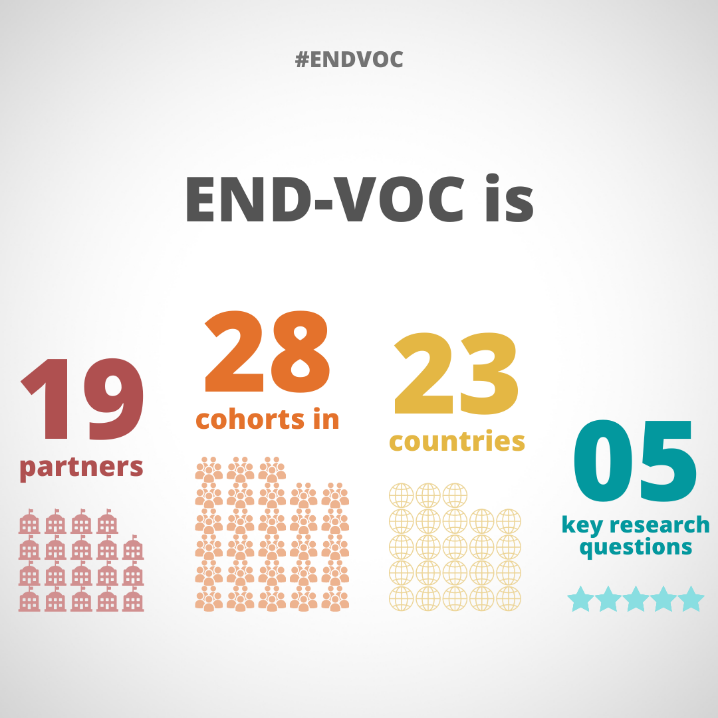- The Laboratory
- Organization
- Departments
- Jobs
- Analysis book
- Contact
- News
- Publications
- Download



The European project aims to evaluate the circulation and impact of emerging SARS-CoV-2 variants of concern through the study of well-characterised cohorts across the world.
The European Commission-funded END-VOC project with the aim of elucidating the circulation and impact of current and emerging SARS-CoV-2 variants of concern (VOC) through the study of well-established cohorts across the world. The project kick-off meeting organised by University College London (UCL), the coordinator of the project, was held virtually from May 16 to May 18 with the participation of all the partners including the LNS, who is leading or co-leading several tasks of the project’s work packages.
The END-VOC consortium consists of 19 partners with cohorts in Europe (UK, Spain, Italy, Germany, Netherlands, Norway, Luxembourg, Switzerland), South America (Brazil and Peru), Africa (Mozambique, South Africa, Nigeria and 13 countries in the ANTICOV trial), Middle East (Palestine) and Asia (India, Pakistan, Philippines). By using data from 28 well-established cohorts in these countries, the three-year project will focus on five key areas: i) detect and characterise emerging viral variants; evaluate their capacity to ii) evade vaccine-induced immunity or cause reinfections, iii) escape current treatments, iv) cause Long Covid; as well as v) provide recommendations to better prepare and respond to future infectious disease outbreaks.
During the three-day meeting, the researchers discussed how they plan to carry out the different tasks described in the project, and underlined the importance of adapting some of the research questions to the rapidly evolving situation of the pandemic. The project has received funding of almost 10 million euros.
END-VOC Consortium:
University College London, United Kingdom (Lead)
Laboratoire national de santé, Luxembourg
Fondazione IRCCS Ca’ Granda Ospedale Maggiore Policlinico, Italy
Università Degli Studi Di Milano, Italy
Universitatsklinikum Heidelberg, Germany
Instituto de Salud Global de Barcelona, Spain
Institut Universitari per la Recerca a l’Atencio Primaria de Salut Jordi Gol i Gurina, Spain
Folkehelseinstituttet (Norwegian Institute of Public Health), Norway
Stichting Amsterdam Institute for Global Health and Development, The Netherlands
Nigeria Centre for Disease Control
Universite de Geneve, Switzerland
Public Health Foundation of India
Laboratoire National De Santé, Luxembourg
Arab American University Palestine
Institut D’investigació En Ciencias De La Salut Germans Trias I Pujol, Spain
Dopasi Foundation, Pakistan
University of The Philippines
Fundação Manhica, Mozambique
Drugs for Neglected Diseases Initiative, Switzerland
Fundação Oswaldo Cruz, Brazil
Affiliated Entities:
Hospital Clinic De Barcelona, Spain
Institut Català De La Salut, Spain